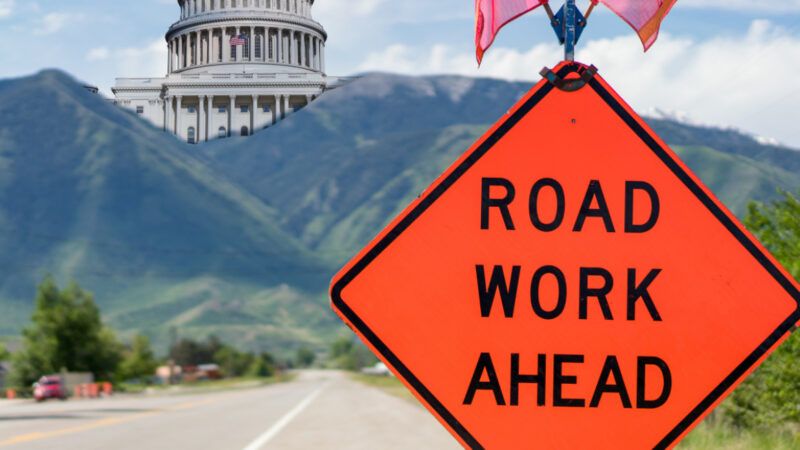Biden's Infrastructure Plan Confuses Costs for Benefits
The president is doubling down on bad regulations that raise labor and material costs of federal infrastructure projects.

The list of things that President Joe Biden hopes to accomplish with his American Jobs Plan is nearly as impressive as its $2 trillion price tag. "It's not a plan that tinkers around the edges," Biden bragged during an April speech in Pittsburgh. "It's a once-in-a-generation investment in America. It'll create millions of jobs, good-paying jobs. It'll grow the economy, make us more competitive around the world, promote our national security interest, and put us in a position to win the global competition with China."
The president's speech did not dwell on the specific projects he wants to fund or how he might go about delivering them in a cost-effective manner. He focused instead on all the money he plans to spend and its potential for stimulating the economy. For Biden, the actual impact of new roads and rail lines on commute times and shipping costs is less important than the gargantuan price. That attitude suggests Biden's plan will buy a lot less infrastructure than it would if he prioritized efficiency.
Consistent with that prediction, Biden is not satisfied with creating jobs; he wants to create union jobs. "It's about time [unions] get a piece of the action," he said in Pittsburgh.
Thanks to the Davis-Bacon Act of 1931, which mandates that all infrastructure projects receiving federal funding pay "prevailing" (generally union) wages, organized labor has been getting a piece of the action for nearly a century. This requirement raises labor costs by as much as 22 percent, according to an analysis by Suffolk University's Beacon Hill Institute.
The president's insistence that he'll sign off on a contract only if it's with "an American company with American products all the way down the line and American workers" will raise costs even further. Existing "Buy American" provisions are a well-established driver of transportation project costs.
A 2019 report from the Congressional Research Service found that buying American steel costs around twice as much as importing it from China. Requiring road builders to use pricier domestic steel raised the cost of highway construction by about $2 billion from 2009 to 2011, back when then–Vice President Biden was overseeing the spending of stimulus dollars on infrastructure projects.
If the president's goal were truly to "build, baby, build," he would be making every effort to pare back regulations that raise the labor and material costs of federal infrastructure projects. Instead, Biden wants to double down on those rules.
Something similar could be said of the president's focus on advancing racial equity, a $20 billion item in his American Jobs Plan. In March, the Biden administration deployed the 1964 Civil Rights Act to pause a highway widening in Houston so that it can examine that project's potential racially discriminatory effects.
It is true that past federal infrastructure blitzes have torn through more than a few black neighborhoods with little regard for the people who lived there. But Biden's novel use of civil rights law to hold up a project he doesn't like could well backfire by creating a new avenue for activists to slow down lots of other infrastructure investments the administration actually wants. "What I fear is that we are opening a new front where civil rights law is being used with the same logic as environmental NIMBYism," says Michael Hendrix, director of state and local policy at the Manhattan Institute.
Speaking of environmental NIMBYism, Biden is backtracking on the Trump administration's reforms to the National Environmental Policy Act (NEPA), which requires federal agencies to assess the environmental impact of decisions like funding a bridge replacement or permitting an oil well. Activists of all stripes frequently use the law, and the power it gives them to sue federal agencies, to slow or stop infrastructure projects.
In 2020, the Trump administration finalized a rule aimed at narrowing the range of projects subject to NEPA and speeding up the reviews that would still be required. The Biden administration is now considering amending that rule and may even scrap it entirely.
Despite the president's claim that his American Jobs Plan will be a generation-defining investment in the future, his administration remains committed to preserving outdated red tape that will inevitably impede whatever it ends up trying to build.
Rent Free is a weekly newsletter from Christian Britschgi on urbanism and the fight for less regulation, more housing, more property rights, and more freedom in America's cities.


Show Comments (40)